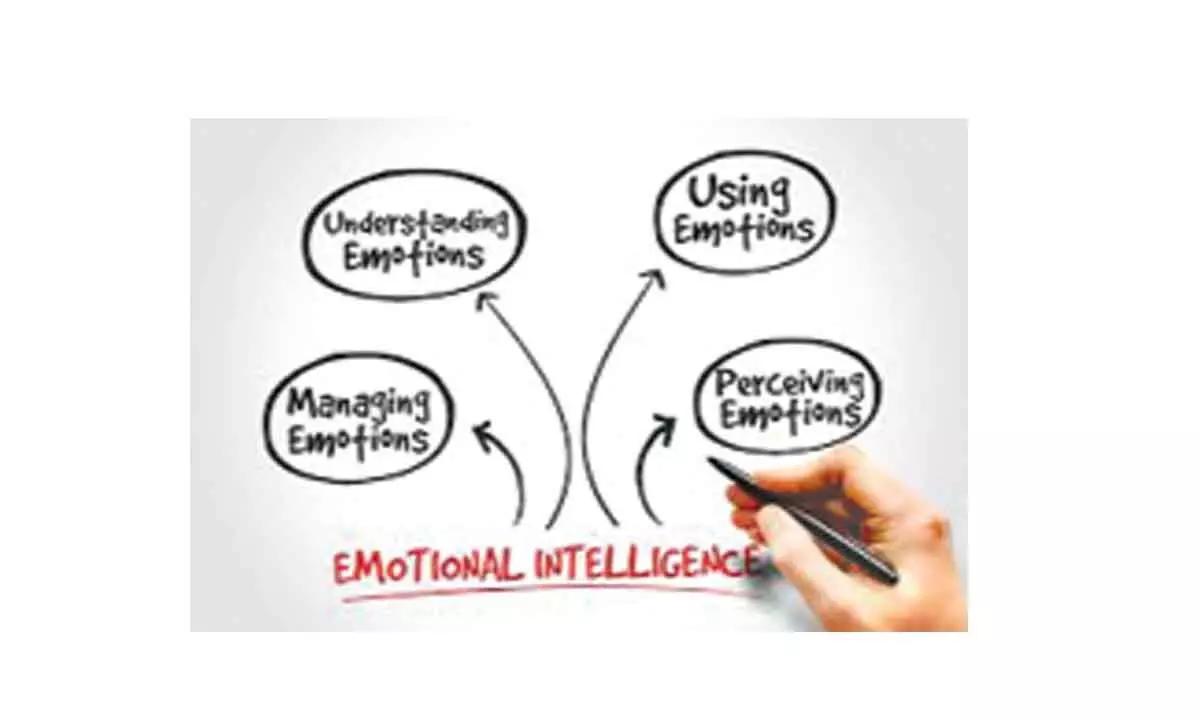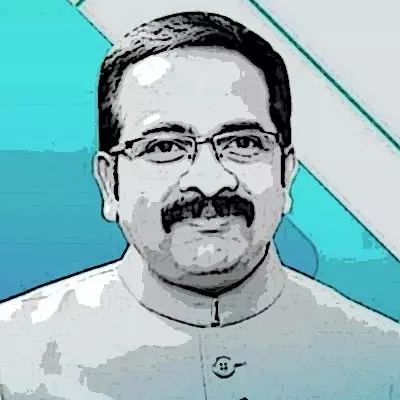Emotional Intelligence & Suicide Prevention

There is a steep rise in mental health disorders, full-blown manic diseases and even suicides across the socio-economic spectrum across the world.
There is a steep rise in mental health disorders, full-blown manic diseases and even suicides across the socio-economic spectrum across the world. The reported number of cases of suicides is shocking, and what is more unsettling is the unknown number of unreported cases.
There is a misplaced school of thought, which argues that all mental illness, especially depression, is chemically induced and is only a subject of medical profession. They also very naively believe all depression is only clinical and can't be cured without serious medication.
As a global authority in the science of Emotional Intelligence, I completely disagree with the notion that all depression is clinical. I also disagree that all forms and degrees of mental illness require medical intervention. Nonetheless, it does not harm to consult a psychiatrist over a case of severe, unmanageable depression. There is a possibility of gene influenced vulnerability by birth which can drive physiological inability to produce certain chemicals essential for mental wellness, which certainly require medical intervention. However, all other behaviours induced, socially triggered mental illnesses, need serious upskilling in 'Emotional Intelligence' and psychological therapy.
I strongly believe and it is proven beyond doubt that 'Emotional Mismanagement' paired with social pressures, unhealthy social habits, disabling emotional environment, and unsatiated primal emotions will lead to serious mental health issues in people of all ages, genders and socio-economic conditions. Spate of suicides amongst successful young achievers, midaged celebrities, super successful entrepreneurs is an extremely disturbing trend globally. Anthony Bourdain, a celebrity chef and a global icon in his profession ended his life at 61, at the peak of his career. Kate Spade, a successful global designer whose iconic brand Kate Spade hand bags sell world over, ends her life abruptly at 55. Again, at the peak of her professional career!
More recently, Pratyusha, a renowned costume designer from Hyderabad, India, ended her life at 26 forcefully by breathing Carbon Monoxide to poison herself to death. If they were mentally unwell all along their life or on serious anti-depression medication for decades, they wouldn't be as successful as they were, especially in creative fields. Prima facie, these individuals have walked into self-made or induced emotional traps. They seemingly were experiencing a web of disabling emotions which they were unable to untangle from, and have led themselves to choose death. Yes, unfortunately in each of these cases, suicide was a clear choice to end the emotional pain they were experiencing.
Being Emotional Intelligence enabled could have given them strength to cope with disabling emotions. It would have powered them to search and find better choices to resolve in comparison to the one they have unfortunately chosen. Emotion is quite powerful. Emotions are both enablers and disablers. There are many factors which drive an individual towards ending their life. In this column, I wish to highlight
just two prime inducers of suicides in humans, and how being emotionally intelligent could save one from death traps:
1. Exaggerated and Mis-defined 'Depression'
In our times, Depression is the most misused and abused word. It is almost normal now a days, that even if someone is incidentally 'Sad,' others around can label them as 'Depressed'. In fact, with the growing habit of using wrong emotional vocabulary, even individuals are labeling themselves as 'Depressed,' while they might simply be 'Unhappy,' 'Lonely,' 'Withdrawn,' or 'Sad.'
All the above are regular emotions felt by any human being in living in a social ecosystem. However, by constantly exaggerating and labeling a set of regular emotions as 'Depression,' most people are nudging themselves and others into this disabling emotion. 'I am depressed' is a very disabling statement. 'You are depressed' is much worse.
Especially, when, one is not clinically depressed and is simply going through a regular emotional cycle. A majority of individuals are extremely poor in managing their own emotions, leave alone managing other's emotions. However, most of them attempt to be experts in managing other's emotions by casually judging, labeling and concluding abrasively. This amateur emotional diagnosis leads to serious emotional inducement of the victim towards further disabling emotions.
As a consequence of massive Emotional-Illiteracy in human societies, there are unhealthy and harmful words thrown at people randomly with impunity on a daily basis. Emotionally sensitive individuals fall prey to these exaggerated emotions around them, drawing them into a cocoon to protect themselves, mostly withdrawing from their social system. If that becomes a habit, it has already caused that individual grievous damage. Eventually, over a period of time this emotional sensitivity drives the individual towards exaggerated emotions induced Depression.
On the other hand, Emotional Intelligence enabled individuals understand the power of emotions and the impact of emotional vocabulary. E.I enabled individuals choose their words with caution, especially when they use emotional words to label, judge or conclude other people's actions or emotional states. They do the same to themselves as a protection from unwarranted emotional attacks, words, labels and conclusions from others.
E.I enabled individuals have a protective emotional shield and can easily manage any disabling or complex emotion thrown at them. Their understanding of emotions and its power play ensures caution and management. Lack of Emotional Intelligence at educational institutions, work places, families and other social settings is leading to irreparable emotional pain and distress. Depression is a big word. It is a serious mental condition, which needs either immediate medical intervention, emotional support or both. Using this word randomly or casually to label one's self or others is utterly insensitive and dangerous.
2. Emotional Mismanagement
As a social being, we all encounter complex people and situations everyday which drive certain emotions. These emotions could be positively enabling or negatively disabling. If an individual cannot manage these distinctly different types of emotions at varying degrees effectively, they tend to build a behavioral pattern of 'emotional mismanagement'. Once such pattern is established, individuals lose emotional capability to address each of these emotions effectively to resolve and satiate the same.
If I am blind and unaware of what type of emotions, I am experiencing all day, I might not be able alter the course to choose better emotional experiences, especially, if I am sinking into a negative emotional environment. Each ecosystem, situations, individuals in that space present you with distinctly different emotions. If one is not picking and choosing more positive and enabling emotions, they tend to be mostly surrounded by negative and disabling emotions.
Accumulation of disempowering and disabling emotions over a period of time can lead individuals into an abyss of emotional distress and negativity, mostly leading to suicidal thoughts and actions.
Conclusion
This column is a small effort to reach out to those who are on the borderline of social abuse through abundant emotional disregard at family settings, work places, educational institutions and other social settings. Most of the suicides are not instantaneous. Mostly, individuals who commit suicide exhibit all forms of visual, verbal and nonverbal, social and emotional expressions months, weeks or days prior to the fatal action. Unfortunately, in many cases, even those in physical proximity to these individuals tend to be ignorant, insensitive or blind to all forms of the terminal expression and might do nothing to reach out and resolve in time.
In majority cases of suicide, lack of Emotional Intelligence leads the victim to this desperate act. The core reason being the inefficiency in preventing 'negative emotional build up' by the individual, and the incompetence of family, friends and the social system to come to rescue at the right time, to build just one more choice to live.
(The Author is a Harvard Business School certified Organizational Strategist and a Global Expert in Emotional Intelligence)











